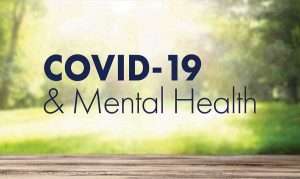5 years ago · admin · Comments Off on Mental Health and COVID-19
Mental Health and COVID-19

World Health Organization defines COVID-19 as an infectious disease which spreads primarily through the droplets of saliva or discharge from the nose when an infected person coughs or sneezes. At this time there are no specific vaccines or treatments for COVID-19.
World Health Organization declared the outbreak of a new coronavirus disease to be a Public Health Emergency of International Concern in January 2020. In March 2020, World Health Organization made the assessment that COVID-19 can be characterized as a pandemic. At the time of writing this article, over 4,210,539 people have been infected with around 1,452,984 recoveries and over 287,564 deaths.
COVID-19 is not just a simple medical phenomenon. It affects individuals and communities on many different levels, including psychological disruptions. Effects of the outbreak of COVID-19 may include fear and worry about your own health and the health of your loved ones, changes in sleep or eating patterns, difficulty sleeping or concentrating, worsening of chronic health problems, worsening of mental conditions, increase of alcohol, tobacco or other drugs etc.
Older people and people with chronic diseases, children and teens, people who are helping with the response to COVID-19 such as doctors, other health care providers and first responders, people who have mental health conditions including problems with substance use may respond strongly to COVID-19.
